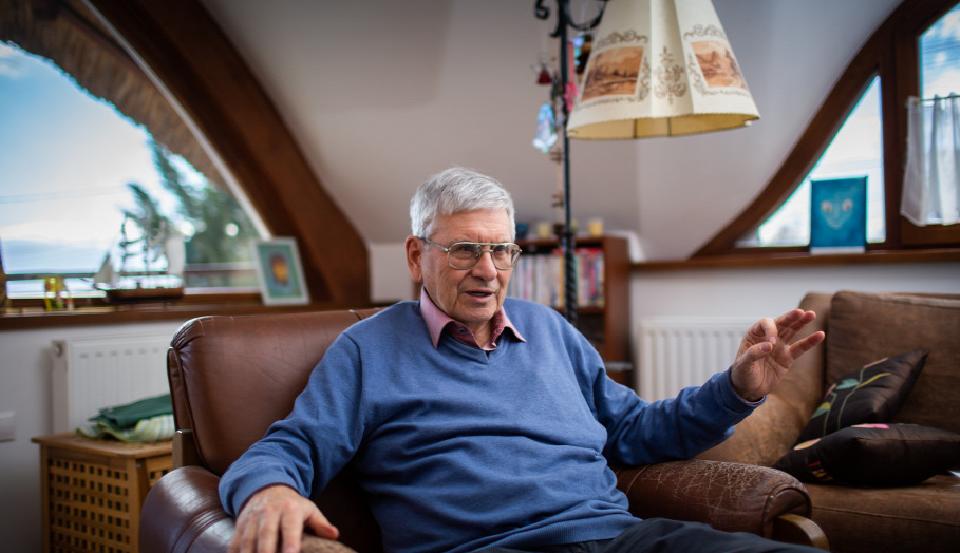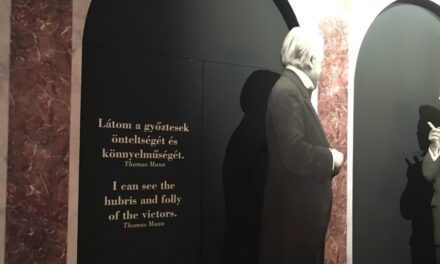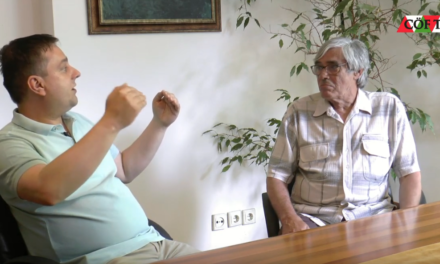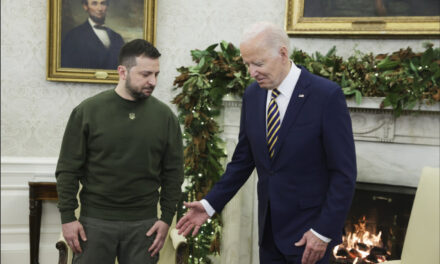Of course, the Russians and the Ukrainians - we can answer the question immediately, and it is so, if we only look at the concrete armed clashes, but everyone knows that this is a proxy war (fought with proxies), the Ukrainians (and also the Russians) are only victims , the fight is going on for the rearrangement of the zones of influence, for whether the unipolar world order can give way to a multipolar power field.
But before we go into the details, let me quote from the once leftist, but now more liberal English daily, The Guardian, from an article published after the outbreak of the war: "History will show that Washington's treatment of Russia in the decades following the fall of the Soviet Union it was a huge political blunder. It was entirely foreseeable that NATO expansion would eventually lead to a tragic, perhaps violent, break in relations with Moscow. Astute analysts warned of the possible consequences, but these warnings were not heeded. We are now paying the price for the short-sightedness and arrogance of the American foreign policy institutional system." (The Guardian 28 February 2022)
The quote accurately describes the situation, but perhaps a small amendment is needed: the price will be paid not by everyone, but by Ukraine, Russia and the European Union, and the United States may even gain, at least financially. Now some leading Western newspapers (for example, Der Spiegel) go so far as to illustrate with photographs the great confusion that occurred when the Russian troops were withdrawn from Germany: smiling politicians, toasts and the promise that if the Russians withdraw, NATO will withdraw an inch nor does it go east. As we know, it went.
How we judge the situation largely depends on the outline of the background, the narrative. The vast majority of the Euro-Atlantic media present the situation as if the war stems from Putin's evil and his desire to restore Russia's geopolitical influence similar to that of the Soviet Union. It follows that if Putin could somehow be got rid of, then the Russian-Ukrainian conflict would also be resolved. To this end, Republican Senator Lindsey Graham proposed assassinating Putin.
His fellow representatives distanced themselves from this, but we know that such solutions are not alien to American politics, just think of the fate of the Libyan president, Muammar Gaddafi, or the Iraqi president, Saddam Hussein, and many may also remember that the assassination of Fidel Castro was organized by the CIA in order to The latter can be memorable if only because one of these assassination attempts was the subject of a rather successful documentary Dear Fidel! - Titled Marita's story. The same forces now want to impose the strictest sanctions against Russia, advocating arms shipments to Ukraine, and even proposing direct NATO intervention in the war.
Who are these forces? First of all, it should be seen that this is not about the United States or other NATO countries, but about the network that influences both American and European politics, one of whose nodes can be identified (for example, György Soros), but not themselves responsible for the formation of the policy individual nodes are responsible, but the network as a whole. Even if one node were to cease to exist for some reason, the network would continue to function unchanged and influence the politics of individual countries.
In history, there have probably always been such networks, background powers, "deep states", "gray eminences" who largely invisibly, from the background, controlled the actions of the visible and seemingly decision-making rulers and politicians. I would link the formation of the current form of the current Euro-Atlantic background power network to the turn of economic philosophy that occurred in the nineties.
Western politicians (primarily Margaret Thatcher and Ronald Reagan) wanted to get out of the economic upheaval following the oil price explosion of the 1970s on the basis of neoliberal economic philosophy and unleashed the wild forces of capitalism, which were restricted after the great crisis of the 1930s. As a result, a huge concentration of capital has taken place, the management of a large company already has more economic power than the economic power of a medium-sized country.
However, this concentration took place not only in the production sphere, but also in the media, the majority of the Euro-Atlantic media is in the hands of a few large corporations. All this means that enormous wealth and media power are concentrated in the hands of a handful of people. The fact that power, like light, has a dual nature contributes to all of this. As we know, light behaves as both a wave and a particle, and power is both political and economic power, which can transform into each other: those who have money can get political power, those who have political power can get wealth, the reader could surely list examples.
But the mentioned economic and media networks only provide the hardware of the network, to which is added the software for strengthening and expanding their power, the series of research institutes, universities and other knowledge centers that serve the ideology for the maintenance and expansion of the given system. It is not about paying researchers, journalists, politicians to follow the interests of the network, but about funding those whose views serve the interests of the network. With this method - due to the natural changes of personnel taking place in one or the other institution - in a decade or two, a neutral or diverse ideological space can be transformed in such a way that it only serves the interests of the network as a whole.
And this transformation is taking place not only in knowledge centers, but in state institutions, legislatures, political parties and all places where existence depends on some kind of external support (such as foundations, government subsidies). All of this system is complemented by political NGOs that directly intervene or facilitate it, as well as those organizational forms that bring together people representing the nodes of the network from time to time. Examples include the Bilderberg Group or the World Economic Forum in Davos.
Next, let's look at the impact of the outlined theoretical framework on today's war in Ukraine. Russia attacked Ukraine in order to prevent it from becoming a member of NATO, not a single expert disputes this, so the matter started when the decision was made to expand NATO to the east. However, this was preceded by the announcement of a unipolar world order dominated by America (1990, Charles Krauthammer, Foreign Affairs).
If Krauthammer's essay appears in, say, the Ithaca Times, no one pays attention, but Foreign Affairs is published by the Council on Foreign Relations. The Council on Foreign Relations, founded in 1921, is intertwined with America's big corporations and the Washington administration in terms of both its funding and its membership. In 1995, Zbigniew Brzezinski, the former national security adviser of Polish origin, also gave a detailed guide to NATO expansion in Foreign Affairs.
The interesting thing is that the president himself, Bill Clinton, did not want to expand NATO, but he could not resist the pressure on him. After that, the machine was already in motion, and by this time various governmental and non-governmental organizations and the CIA - with the broad support of the media - did their part to form NATO-friendly governments in countries that might be reluctant, just think of the 2014 for a turn in Kiev. It is worth noting that two-thirds of Ukraine's population previously rejected NATO membership.
Many people in America opposed the expansion of NATO, interestingly also George F. Kennan, who, by the way, was the main developer of the strategy aimed at curbing the Soviet Union during the first Cold War, but the opponents were in the minority against the network. It should be noted here that the interests of America are not the same as those of the network, which is why a hate campaign against Trump, who represented America's national interests, was launched in the media. The network has its own interests, above all, to maintain and expand its power and spheres of influence, and in this it uses the military power of NATO.
Because of what has been said, it will be difficult to make peace, because only one side has a real negotiator (Putin). On the other side, there is Zelensky, who is a prisoner of the Ukrainian extremists and the Americans (if he had passed, there would be no war), and there is the American leadership, who is a prisoner of the network. The network itself is elusive due to its diffuse nature, with whom should Putin make peace? With György Soros? With Victoria Nuland? With the New York Times?
Author: Károly Lóránt, economist, advisor to the National Forum
Source and photo: Magyar Hírlap













